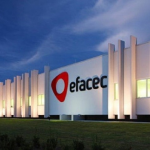Cryptocurrencies and blockchain – game-changers in real estate transactions
CRYPTOCURRENCIES ARE AN INCREASINGLY COMMON MEANS OF CARRYING OUT TRANSACTIONS QUICKLY, SECURELY AND AT REDUCED COSTS, WITHOUT THE INTERVENTION OF ANY INTERMEDIARY ENTITIES. ESSENTIAL BUSINESS DISCOVERS MORE
Although the European Central Bank and Member-State governments — including the Portuguese – are wary, blockchain and cryptocurrencies are a fact of life and are here to stay.
And Residential Real Estate, arguably one of the main drivers of the Portuguese economy, will be revolutionised by blockchain technology in the same way that it is transforming so many other sectors of the economy such as banking.
Crypto-Certified Agent and Legal Services Advisor for Legacis, José Branco, who was the guest speaker at the regular Real Estate Network Meet-Ups organised by the Estoril-based luxury estate agency Brightman Group, says that while for much of the general public the use cryptocurrencies and the concept of blockchain still remain a complex and even controversial subject, they will increasingly become a common means of carrying out property transactions and not only.
Speaking at the Liquid Lounge on Wednesday evening (12 October), José Branco explained to a group of 30 estate agents, business owners and investors that in short a blockchain transaction is “a digital transaction that is recorded on a public ledger”.
Blockchain is a peer-to-peer network that is above the internet and was introduced in 2008 as part of the proposal for Bitcoin, the virtual currency system that moved away from central bank control for the issuing of currency.
Fraud-free transactions
José Branco says blockchain transactions are transparent and cannot be tampered with. This makes them ideal for real estate transactions which are often very complex and involve many different parties.
“With blockchain, all parties can see the status of the transaction at all times, so there is not room for error or fraud”, he said.
José Branco’s intervention was timely. In May this year, the online property news site Idealista reported how a three-bedroom apartment in Portugal’s northern city of Braga was sold for 3 bitcoins worth €110,000 at the time; the first 100% cryptocurrency transaction in Portugal.
Under the terms of a new Government regulation accepted by the Notaries Association (Ordem dos Notários) which came into force in April, a property purchase may be made in a 100% crypto transaction via an exchange: the buyer passes his digital crypto ‘coins’ to the seller in an exchange of digital currency for the right to own the property.
Before the April 2022 law, at the time of the exchange of contracts the buyer had to have already covered their cryptocurrency into euros to undertake the operation.
But he says cryptocurrencies and the blockchain network that transactions are checked and recorded on are inevitably game-changers for the property market and real estate agents need to get informed.
“The ownership of property has been a game of written rules and regulations determined by a judge or the courts. However, things are going to be different as the old world is giving way to the new and digital world” said José Branco
“There are some homes in Portugal that since the first transaction have been bought in Bitcoin and other cryptocurrencies”, he says pointing out that he himself was one of the first people to facilitate a purchase using cryptocurrency for the transaction of a property in the Algarve.
“These were US clients who bought a property in Aljezur and I facilitated the transaction in January because most people don’t know how to do it. Since, there have been quite a few; one in Braga, another in Madeira and others.
Real estate is going to be revolutionised, and it makes sense for estate agents to be certified in knowing how to transact and how to facilitate these transactions for their clients, many of which are coming from abroad,” explained José Branco.
Anne Brightman, CEO of the Brightman Group also acknowledged the importance of estate agents being informed about and at ease with property transactions in cryptocurrencies after a client walked into their office six months ago wanting to make such a transaction and, as she admits “we didn’t have a clue about the process”.
José Branco, who has over eight years experience in the cryptocurrency business, says that blockchain transactions will become more common as processes are demystified precisely because they are so fast and efficient, being competed in minutes, whereas traditional real estate transactions can take weeks or even months to complete.
Cutting out third parties
The crypto-certified agent points out that not only will the technology make real estate transactions faster and easier, it will also reducing the need for third parties, while using smart contracts* could automate many of the tasks involved in a real estate transaction, from title searches to escrow** services.
“I predict that 80% of the third parties that exist today in a property transaction will no longer be needed in a few years time”.
Branco, originally a banker with 30 years experience under his belt, explained that a further advantage of blockchain is that it provides a securer way to record ownership of property since “traditional methods of property ownership registration are often vulnerable to fraud or errors”.
“Blockchain offers a tamper-proof way to store information which could help reduce the incidence of property scams” he says.
José Banco adds that there is a level of help when it comes to doing transactions in cryptocurrencies, especially in the main five or six currencies: Bitcoin, Etherium, Tether, US dollar Coin and XRP, but there are clients who have many coins in a completely different coin that may have very little liquidity that are not so easy to exchange.
The crypto-certified agent explains that the rise of cryptocurrencies and the blockchain on which ownership and transactions are registered is already on the rise in the US and UK markets, but is now gradually filtering through into the European markets, including Portugal.
Blockchain and tokenised systems and the future
José Branco says that with blockchain it is often difficult to tell where the technology will lead. While most people are already aware of blockchain’s potential to revolutionise the financial sector, it is not clear how it will exactly shake-up the real estate system.
One way in which blockchain could have a major impact is through the tokenisation of assets. Tokenisation is the process by which an asset is converted into a digital token that can be traded on the blockchain platform.
This would allow for the fractional ownership of assets as well as greater liquidity. For example, rather than having to sell a property in its entirety in order to raise capital, owners could “tokenise” their assets and sell tokens representing a percentage of ownership. “This could open up a whole new world of investment opportunities for both individuals and institutions”, says Branco
“With what is happening around the world today so many people are and will be moving to Portugal because it is deemed as safe and secure, as well as being a beautiful place, and you will have to be ready for this influx of people who will want to increasingly undertake their transactions using cryptocurrencies”, concluded José Branco, Cryptocurrency Legal Service Advisor for Legacis Advogados and Certified Agent.
Notes:
*a smart contract is a computer program or a transaction protocol that is intended to automatically execute, control or document legally relevant events and actions according to the terms of a contract or an agreement.
**Escrow refers to a neutral third party holding assets or funds before they are transferred from one party in a transaction to another. The third party holds the funds until both buyer and seller have fulfilled their contractual requirements.
Photo: Anne Brightman, CEO of Brightman Group with Guest Speaker and Cryptocurrency assets expert José Branco.










